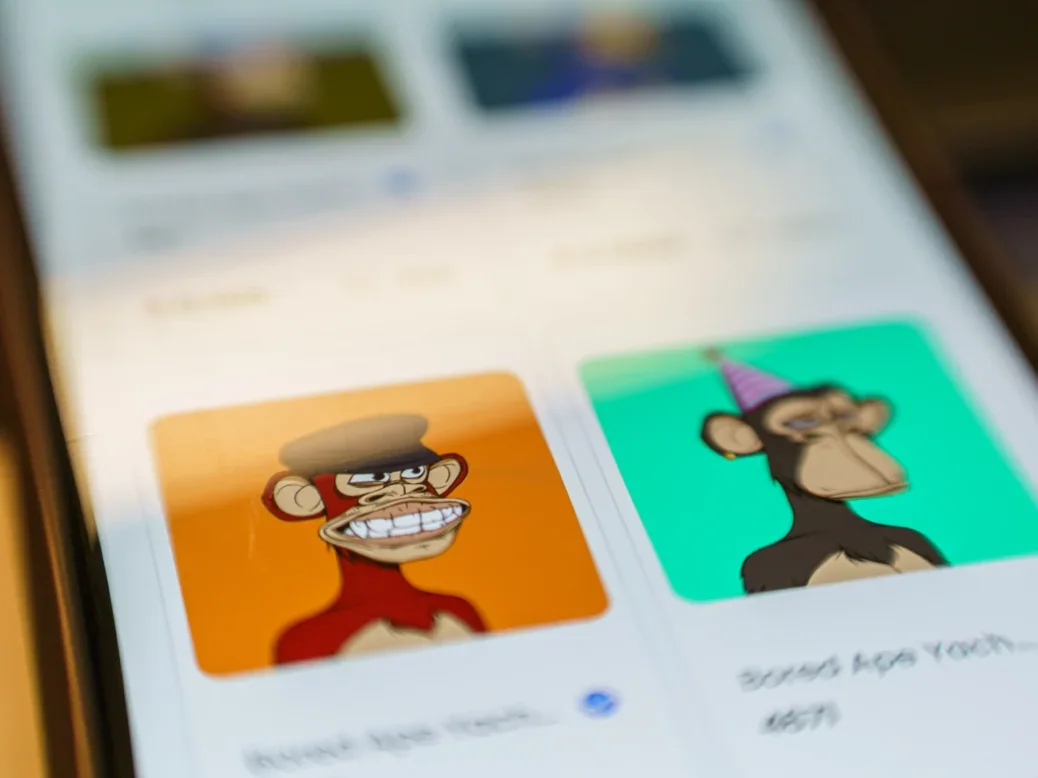
Kingsley Napley’s Ellie Fayle examines the intricacies of investing in NFTs and breaks down what you need to know.
Non-fungible tokens (‘NFTs’) have been the gold rush topic in the art world over the past 18 months, with the market reaching 16% of global art sales in 2021 – perhaps, in part, a reaction to the months of lockdown which forced art buyers into virtual auctions, viewing rooms and digital exhibitions.
The most profound development has been the medium’s popularity with new collectors, for whom NFTs offer an unprecedented gateway into the art world.
What is an NFT?
The short answer is that an NFT is unique line of code, or token, that functions as a record of ownership over (most commonly) a digital artwork or collectible, or sometimes over a physical object. NFTs are built to function on an underlying blockchain, where transactions are irreversibly and publicly recorded on a digital ledger – for new digital art buyers, this transparency is a significant draw.
The operation of an NFT is governed by the ‘smart contract’, that allow for bespoke functionality, such as perpetual royalties to the artist on re-sale. NFTs are bought, sold and held by individuals in their ‘crypto wallet’.
However, as with any nascent technologies, there are a few things that collectors need to bear in mind before embarking on an NFT buying spree.
What you need to know before investing
- Security & Control: NFT-based digital art is only as secure as the server it is stored on
- Contract: How an NFT can be used is often governed by complex terms and conditions
- Legitimacy: Perhaps more so than conventional art, there is little to stop people minting fraudulent NFTs
- Fraud: Buyers need to be vigilant about phishing and other scams, as in other markets
- How to protect yourself.
Security & Control
A common misconception is that an NFT is the artwork itself. In reality, most NFTs simply contain a link to the digital artwork, which is hosted on a third-party server. It is more accurate to think about NFTs as a certificate designating the named person (or, more accurately, their crypto wallet) as owner of that digital artwork. Owning one does not give you any special control over the artwork – it can be viewed or replicated by anyone.
The implications are numerous. Crypto wallets can be hacked (as I describe later) but, more critically, the digital artwork will exist only for as long as it remains safely on the server. In the event that the server goes offline (for example, if the host company shuts down or if the data centre suffers an outage), all that will be left is an NFT pointing to a broken URL and the digital artwork will be gone.
There are workarounds, such as the creator issuing a new NFT with a new link, but this raises the question of whether, whilst indistinguishable from the original, this NFT has the same value (emotional or financial) as the original.
Contract
It is essential to pay close attention to the contract when investing in NFTs as each is sold subject to a web of interconnected terms – those of the platform, those embedded in the ‘smart contract’ governing the functionality of the NFT, and those specified by the artist separately. Therefore, careful attention needs to be taken to ensure that the buyer is getting what they expect – the right to display the artwork or sell it on without restriction, for example.
Legitimacy
There have been several high-profile instances where sellers have uploaded NFTs for sale where they allegedly did not have the right to the underlying works. In 2021, the ‘Global Art Museum’ launched a project selling a collection of NFTs, comprised of celebrated artworks held in museums around the world – the collection was later withdrawn after the institutions denied any involvement.
Another example is when British art curator Ben Moore minted NFTs based on Stormtrooper helmet designs by artists like Sir Anish Kapoor and Damian Hirst, allegedly without their knowledge or consent. The lesson is that there is little to stop anyone minting an NFT over any artwork, whether or not they own it or the underlying copyright.
The difficulty is that NFT platforms are constructed more like social media sites than sales platforms, with convenience underpinning the design rather than security. So, when investing in NFTs, the only way to have any true comfort that an artwork is legitimately being offered for sale is to carry out thorough due diligence into the seller and the provenance of the artwork.
For major artists, this is theoretically easier – and many are pro-active in tackling illegitimate sales. However, until NFT platforms improve their infrastructure, either on their own or when forced by regulators, buyers would be advised to remain cautious. It is still very difficult to carry out due diligence to any meaningful extent.
Fraud
There have also been various well-reported cases of the NFT-based art marketplace being vulnerable to fraudulent behaviour.
In August 2021, a serial NFT collector (perhaps suspiciously) named Pranksy was duped into purchasing a fake Banksy NFT for $336,000 on the OpenSea platform. After tweeting about his misfortune, the money was subsequently returned to Pranksy – perhaps an indication that the perpetrator was an ethical hacker highlighting the risks of buying NFTs.
Others haven’t been so lucky. In April 2022, hackers infiltrated the Instagram page of The Bored Ape Yacht Club – one of the highest grossing NFT series — and stole around $3m by directing followers to a fraudulent site, in what was effectively a ‘phishing’ scam.

The NFT market is also at risk from rogue conduct from within - wash trading (where sellers buy their own NFTs repeatedly to inflate the price) and insider trading (ahead of an NFT sale) are just two examples, although complex questions remain around the extent to which existing laws apply to this activity and how motivated the authorities are to investigate (for now).
How to protect yourself
Bill Gates recently dismissed NFTs as shams based on the “greater fool theory”. Whilst many would disagree, arguing that traditional markets can be similarly volatile and that these are early days for NFTs, there are concerns that the NFT market has all the hallmarks of a bubble.
However, there are indications that the ‘wild west’ of NFTs may be being reined in – perhaps to investors’ benefit, although it’s too early to say. A recent English High Court ruling recognised NFTs as ‘property’, making it possible to assert certain rights over them. And recent activity by (hitherto complacent) authorities around the world (from HMRC seizing NFTs to the FBI investigating market manipulation) is coupled with action taken by NFT platforms themselves (such as a move to less energy-intensive, environmentally damaging forms of the underlying technology).
In the new world of NFT-based art, there are many benefits - democratised access to art; traceable provenance (for offline and online art); perpetual royalties that allow artists to fully benefit from the success of their art; and new ways for artists to reach new audiences.
Whether you are a traditional art buyer looking to expand your horizons, or an investor seeing NFTs as an alternative class of investment, the risk of being caught out remains high.
When investing in NFTs it is important to be aware that the current lack of regulation in the space, and the intrinsic design of the NFT system, means that buyers ultimately lack protection. As with any gold rush, investors are often taking a more extreme risk. The difficulty with NFTs is that buyers are often not fully informed about complex issues that run to the heart of the technology – largely a result of how the NFT ecosystem itself is structured. The best advice before investing in NFTs is: find out as much as you can – about sellers, artists, artworks and the terms of the purchase itself – before you commit. Better to act with caution now than to uncover a problem when it is too late.
Ellie Fayle is a lawyer in the Dispute Resolution team at Kingsley Napley LLP specialising in art and cultural property matters.






